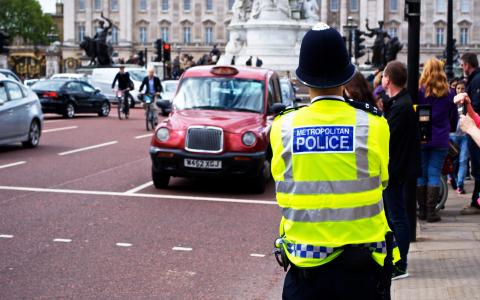
(Insurance Post) - Ghost broking now makes up over a third of the cases being investigated by City of London Police, and there has been a surge in the number of scammers using Instagram to try and con consumers.
While in the past there have been complaints about the time social media giants take to remove suspect adverts, detective chief inspector Tom Hill, pictured, who leads the police force’s Insurance.
Ghost broking now makes up over a third of the cases being investigated by City of London Police, and there has been a surge in the number of scammers using Instagram to try and con consumers.
While in the past there have been complaints about the time social media giants take to remove suspect adverts, detective chief inspector Tom Hill, pictured, who leads the police force’s Insurance Fraud Enforcement Department, said Meta, owner of Facebook, Instagram, and WhatsApp, has upped its game when it comes to pulling posts.
He said: “We get a pretty good response with Meta. With ghost brokers, we see a lot of adverts on Instagram. Clearly, it has got lots of competing priorities, not just insurance fraud. We can access social media platforms, and website providers, to take down profiles and adverts quite quickly, so we have seen an improvement.
“There is a way to go. I would love to see much closer working with social media companies, which hopefully we will get to in the future.”
When asked if Meta was willing to work with Ifed to improve its checks before allowing profiles and adverts to be posted, such as checking the Financial Conduct Authority’s register to ensure individuals claiming to be insurance brokers are regulated, DCI Hill said: “We haven’t formally given any training, but we absolutely would.
“The Online Safety Bill comes through in May and that makes it clear that more engagement is needed between law enforcement and social media companies in relation to that legislation.”
A Meta spokesperson said the social media giant does not allow fraudulent activity and quickly removes accounts that violate policies “when it becomes aware”.
They said: “We work closely with law enforcement to support investigations and keep scammers off our platforms and continue to invest heavily in safety and security.
“We also joined Stop Scams UK to help remove scams at the source. We encourage people to report activity like this to us and the police, so we can take action.”
Meta recently started rolling out a process that requires financial services advertisers targeting users in the UK to be authorised by the FCA.
On the number of ghost brokers trying to scam consumers and businesses in the current climate, DCI Hill said: “It is still a significant issue and I think that online disruption element, to stop people falling victim to it, is really important.
“We have an operation called Operation Mirage, which is our online disruption capability to take out profiles and give some guidance so insurers can report profiles and websites straight into us, so we can take action against them in a timely way.”
Opportunity knocks
Hill said his team is focused on opportunistic fraud, as it expects an increase in that type of activity due to the cost-of-living crisis.
When asked what more could the industry do to prevent and tackle this type of fraud, Hill said: “The fraud community within the industry works closely with us and the Insurance Fraud Bureau. I think that is really good. We would always love more due diligence around policies and claims, but I think there is a commercial reality to this that I am aware of, and alive to.
“I wouldn’t want to preach and tell them what they should be doing. We always advocate early referrals into us so we can – even if we can’t prosecute a case – disrupt an organised crime group that is targeting a certain fraud trend, or company, or series of companies.”
In 2021, Insurance Post reported the number of ghost broking investigations had doubled since 2016. In February 2021, Ifed said that throughout 2020, Action Fraud, the national fraud and cyber-crime centre, received 694 reports of ghost broking – nearly a 10% increase on 2019.
At one end of the ghost broking spectrum are individuals marketing themselves through social media or by word of mouth, who set up policies using real or amended information, or sell entirely fake policies. At the other end, are individuals who are part of organised criminal gangs, who will arrange policies on behalf of criminals with a view to allowing them to drive vehicles they wouldn’t otherwise be able to use.
By Emma Ann Hughes
March 14, 2023



